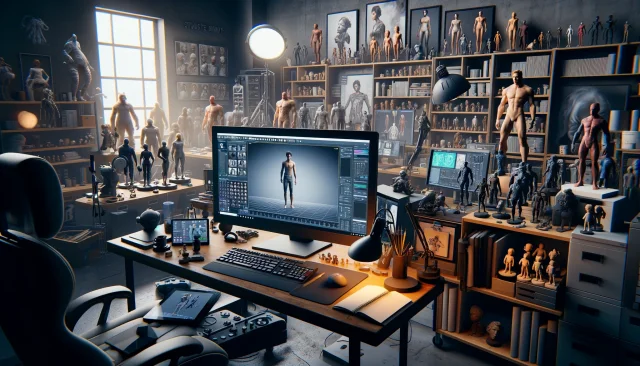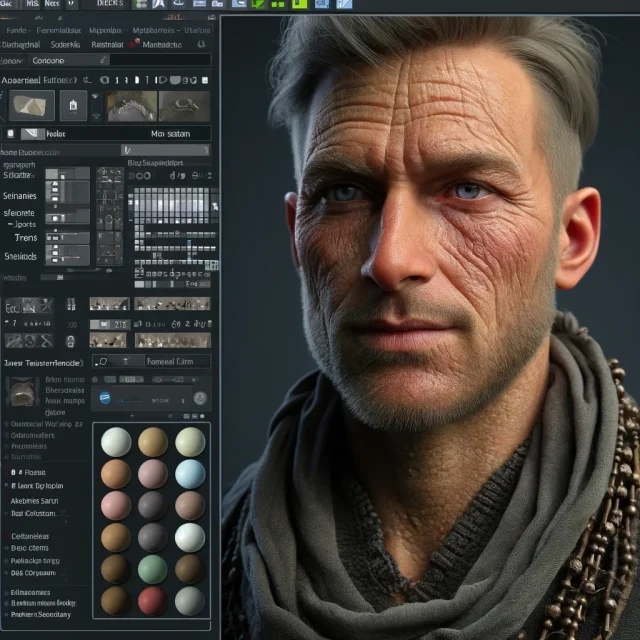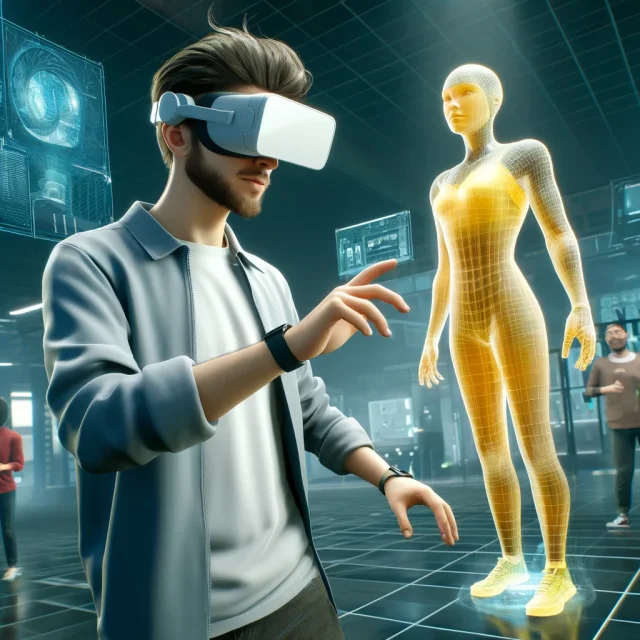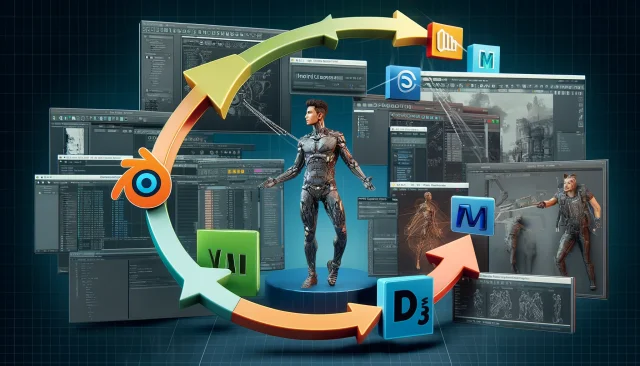Creating and Rendering Hair and Clothing in 3D: Best Practices

In the world of 3D modeling, the creation and rendering of hair and clothing are among the most challenging yet crucial aspects. The realism of hair and textiles significantly impacts the overall perception of a character. This article covers key techniques and tools that will help you achieve optimal results in crafting hair and clothing for your 3D characters, using programs like DAZ Studio and Poser.
Introduction to Hair Creation
Creating hair for 3D characters can be approached through several methods, each with its pros and cons. The most common techniques include using polygonal meshes, fibermesh, and particle systems.
- Polygonal Meshes are typically used for stylized hair. This method is well-suited for games and animations where performance is prioritized over hyper-realism. The advantage of polygonal meshes is that they require less computational power during rendering.
- Fibermesh Hair provides more options for creating realistic hair. It is ideal for high-quality rendering in DAZ Studio and Poser. The process of creating fibermesh hair starts with modeling a basic head shape, after which fibers are applied to create natural-looking strands.
- Particle Systems are used for dynamic, realistic hair that can interact with the environment and the character's movements. This is the most complex method, requiring substantial computational resources and careful parameter tuning.
Hair Rendering Techniques
Rendering hair requires attention to detail and proper lighting setup. It's crucial to use global illumination (GI) and subsurface scattering (SSS) features to make the hair look natural. Additionally, attention should be paid to hair shader settings that accurately reflect and refract light.
In DAZ Studio and Poser, various hair shaders are available that mimic realistic gloss and texture. Experimenting with different shader parameters like color depth, glossiness, and transparency is key to achieving the desired appearance.
Clothing Creation
Clothing creation for 3D characters also begins with choosing a method. The two main approaches include modeling clothes using polygonal meshes and using cloth simulation software like Marvelous Designer.
- Polygonal Meshes are perfect for clothing that doesn't require complex dynamic simulation. This could include uniforms, superhero costumes, or any other apparel where structure is more important than fluidity.
- Cloth Simulation in Marvelous Designer allows for the creation of garments that realistically drape and behave naturally during character movement. This method requires more meticulous modeling as it involves not only the form but also the material properties.
Clothing Rendering
When rendering clothing, ensuring proper interaction of light with the materials is crucial. Using subsurface scattering (SSS) and realistic textures can significantly enhance the visual perception of fabrics. Settings for reflectivity and transparency of materials also impact realism.
Integration of Hair and Clothing in Scenes
Achieving maximum realism involves skillfully integrating hair and clothing into scenes. This includes setting up interactions with the environment and other objects, as well as accurately displaying shadows and reflections.
Resources and Downloads
For DAZ Studio and Poser users, we offer a rich collection of resources that can assist in your projects:
- Download free ready-made characters for DAZ Studio and Poser
- Download creatures and animals for DAZ Studio and Poser
- Download free hairstyles for DAZ Studio and Poser
- Free download clothing for DAZ Studio and Poser
Conclusion
The creation and rendering of hair and clothing in 3D require deep knowledge and attention to the smallest details. Utilizing advanced tools and techniques allows achieving a high level of realism, making your characters compelling and memorable. By following the practices described above, you can significantly enhance the quality of your 3D projects and expand your creative capabilities.
Ctrl
Enter
Noticed a misTake
Highlight text and press Ctrl+EnterRelated news:

Analyzing Trends in Creating 3D Characters for Films and Video Games

Advanced Texturing Techniques in DAZ Studio and Poser

Virtual Reality and 3D Characters: Exploring the Possibilities of Creating 3D Characters for VR Projects with DAZ Studio and Poser, and Necessary Adaptations for VR

Integration of DAZ Studio and Poser with Other 3D Packages: Discussion of Import and Export Processes and Techniques

Modern methods of creating animations for game characters

Utilizing Python for Task Automation in DAZ Studio and Poser
Comments (0)
